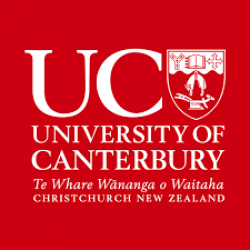
Using complex case studies to teach law and accounting
Status
Completed: 1 September 2019
Project Details
A two-year University of Canterbury project to investigate and develop complex teaching case studies used in law and accounting.
Aims:
This project aimed to investigate how to optimise the use of complex case studies in the teaching and learning of accounting and had three practical objectives:
- Synthesise features of published case studies and their evidence-based efficacy in teaching
- Investigate both student and teacher experiences of using case studies to inform future case-study development and ongoing evaluation
- Develop case studies for teaching and learning about local small and medium sized entities by engaging local businesses and establishing a systematic and ongoing evaluation approach to enhance teaching and learning with case studies.
Methodology:
The project methodology includes:
- a literature review
- a focus group to document students’ experience
- an observation and interviews to document lecturers’ experience
- development of pedagogical guidelines for complex case study design and using complex case studies as a teaching tool
- development of complex case studies including business case studies.
Team

Dr Julia Wu
University of Canterbury, Department of Accounting & Information Systems
Sascha Mueller
University of Canterbury
Associate Professor Erik Brogt
University of CanterburyStatus
Funding
$28,193.00 (excl GST)
Key Findings
Case studies:
- as a teaching tool are essential in the teaching and learning of accounting, a practice-oriented body of knowledge
- form a bridge to relate abstract knowledge of accounting to the real-world organisations where the accounting function exists
- create a sense of relevance for students and communicate the complex and ambiguous nature of reality.
Key Recommendations
The report outlines the following recommendations for lecturers in accounting and related fields who aim to adopt case method for teaching, learning and assessment activities.
- It is recommended that case materials be developed for teaching because the most relevant and up-to-date materials are not always available from publications.
- The case information needs to be presented as a bridge from knowledge to the real-world scenario, thus both ends of the bridge are essential.
- The essence of case method is student-centred learning rather than the case materials per se.
- Prescribing lengthy and uninstructed ‘pre-reading’ should be avoided in implementing case method.
- If a significant amount of learning based on case studies will need to be completed outside of class via self-directed or team-based activities, the relevant learning outcomes should be assessed transparently.
- To optimise the case method, the lecturer’s role is in supporting the students rather than leading the students.
- If circumstances allow, the lecturer should formally evaluate the students' experience via survey or reflective journals on an on-going basis for each significant case-study based assessment.
- The lecturer should both self-reflect and collaborate with colleagues who also use case studies and case method.
This report includes the background, methodology, results and recommendations of the project 'Using complex case studies to teach law and accounting'.
(PDF, 1.3 MB, 71-pages)
- 1 September 2019
A course outline for the University of Canterbury paper, Accounting and Taxation: An Introduction. This was developed as part of the project, 'Using complex case studies to teach law and accounting'.
(PDF, 353 KB, 12-pages)
- 1 September 2019
The student workbook for the University of Canterbury paper, Accounting and Taxation: An Introduction. This was developed as part of the project, 'Using complex case studies to teach law and accounting'.
(PDF, 3.8 MB, 52-pages)
- 1 September 2019